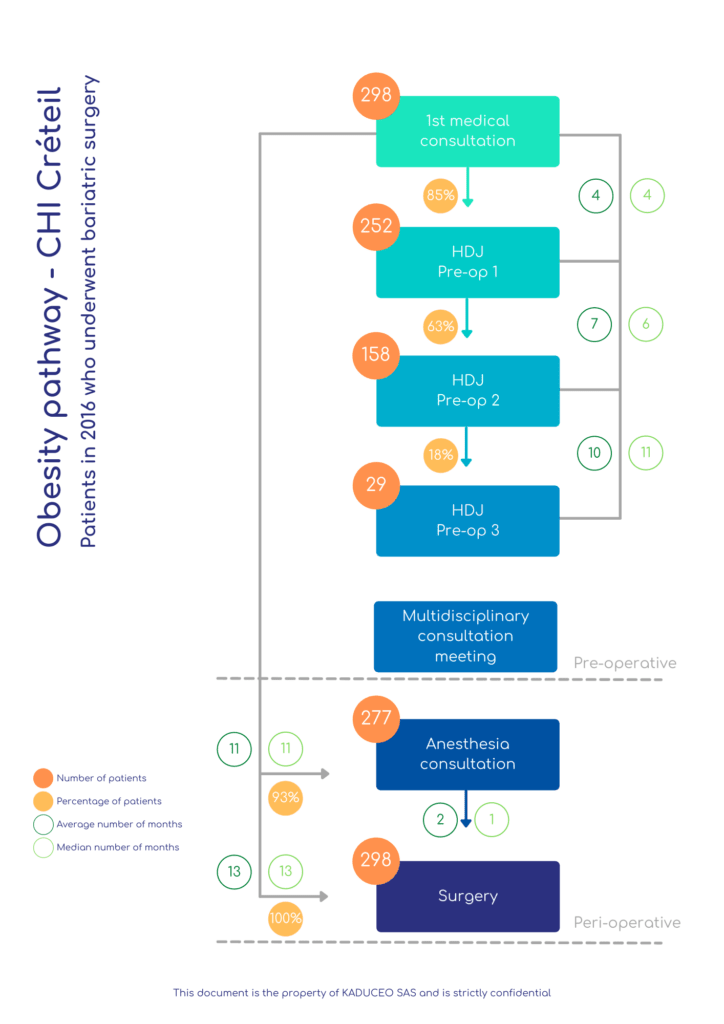Detailed of the project
The doctors in charge of the Bariatric Surgery Reference Center of the CHI of Créteil observe dropouts before the surgery stage. They called upon the Kaduceo team to analyze and understand the care pathway, to determine the risk indicators of patient abandonment and their impact on the cost of the pathway.
Context of the "Obesity & Bariatric Surgery" care pathway
Preoperative management in bariatric surgery is strictly regulated by the HAS recommendations and includes therapeutic education of the patient as well as exploration of comorbidities. Nevertheless, a certain number of patients abandon the operation during this preoperative phase.
The reasons for these abandonments, as well as the costs involved, are not well known in France.
This study aims at analyzing the causes of discontinuation of care and at calculating the economic impact for the health care system.
Characteristics of the data
+
100
Patients were enrolled
This is a cohort study including all patients managed for bariatric surgery between 2014 and 2018. The data mobilized were from the hospital information system (PMSI) and a retrospective clinical database.
Objectives of the work
Medical
- Map the steps of the complete pathway
- Follow the evolution of the patient's medical characteristics
- Propose a chronology of care
Organizational
- Improve care (reduce delays)
- Identify break points
- Build a risk score for abandonmentn
Economic
- Identify and understand leakage rates
- Study the variability of pathway costs
- Encourage patient adherence
Working method of Kaduceo
Application of our agile method favoring regular exchanges with the doctors to ensure the follow-up of the project and to quickly resolve any blocking points.
During the start-up phase of the project, Kaduceo determined the relevance of the data to be collected, then prepared them (cleaning, correction). The data was also enriched in order to build a usable and relevant dataset.
Exploratory analysis
We considered as having dropped out of follow-up those patients who had not had any consultations in the last six months. We have co-constructed with the CHI Créteil team a telephone questionnaire to be administered to the sample of patients "lost to follow-up".
Finally, a medico-economic analysis of the costs generated by these interruptions in the course of treatment is proposed. For this, the cost of consultations and hospitalizations of patients is considered.
-
12 months on average to be operated on
-
47% drop out in the pre-operative phase
-
62% of which after the 1st consultation
-
38% of patients changed their mind
-
Of which 17% because of a too long waiting period
-
633€ median cost of an abandonment
Care pathway modeling


Publications
Results
The pre-operative phase of bariatric surgery is marked by a high drop-out rate, especially at the beginning of follow-up. The majority of patients lost to follow-up appear to have chosen to discontinue (change of mind, waiting too long). Nevertheless, a significant number of patients were forced to drop out because of health problems. These interruptions in follow-up represent a significant cost to the health system, particularly in terms of hospitalizations for these patients.

